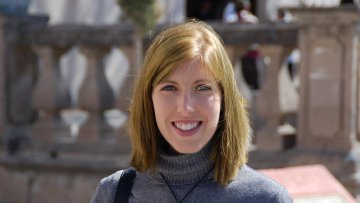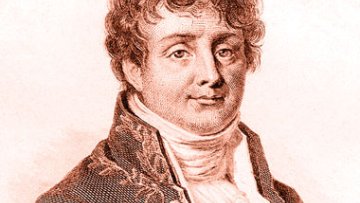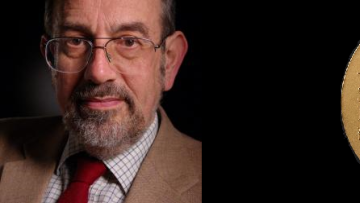Oxford Mathematician Heather Harrington has been awarded a Royal Society University Research Fellowship. The fellowships recognise outstanding scientists in the UK who are in the early stages of their research career and have the potential to become leaders in their field.
The Fourier transform is that rarest of things: a mathematical method from over 200 years ago which not only remains an active area of research in its own right, but is also an invaluable tool in nearly every branch of mathematics. Though originally developed by Fourier in 1807 to help solve certain partial differential equations, the transform is a living example of a remarkable feature of mathematics, that a tool created in one sub-discipline can break through these artificial classifications and become vital in another.
Professor Nigel Hitchin FRS, Savilian Professor of Geometry in the Mathematical Institute, University of Oxford has won the prestigious Shaw Prize in Mathematical Sciences for, in the words of the Prize Foundation "his far-reaching contributions to geometry, representation theory and theoretical physics. The fundamental and elegant concepts and techniques that he has introduced have had wide
11:00
Self-organized dynamics: from emergence of consensus to social hydrodynamics
Abstract
Self-organization is observed in systems driven by the “social engagement” of agents with their local neighbors. Prototypical models are found in opinion dynamics, flocking, self-organization of biological organisms, and rendezvous in mobile networks.
We discuss the emergent behavior of such systems. Two natural questions arise in this context. The underlying issue of the first question is how different rules of engagement influence the formation of clusters, and in particular, the emergence of 'consensus'. Different paradigms of emergence yield different patterns, depending on the propagation of connectivity of the underlying graphs of communication. The second question involves different descriptions of self-organized dynamics when the number of agents tends to infinity. It lends itself to “social hydrodynamics”, driven by the corresponding tendency to move towards the local means.
We discuss the global regularity of social hydrodynamics for sub-critical initial configurations.
Period rings
Abstract
This talk will give a description of the period ring B_dR of Fontaine, which uses de Rham algebra computations.
This talk is part of the workshop on Beilinson's approach to p-adic Hodge theory.
The de Rham algebra of a point in affine space
Abstract
Following the notes and an article of B. Bhatt, we shall compute the de Rham algebra of the immersion of the zero-section of affine space over Z/p^nZ.
This talk is part of the workshop on Beilinson's approach to p-adic Hodge theory.
The de Rham algebra
Abstract
This talk will describe the basic properties of the de Rham algebra, which is a generalisation of the de Rham algebra over smooth schemes, which was introduced by L. Illusie in his monograph 'Complexe cotangent et déformations'.




